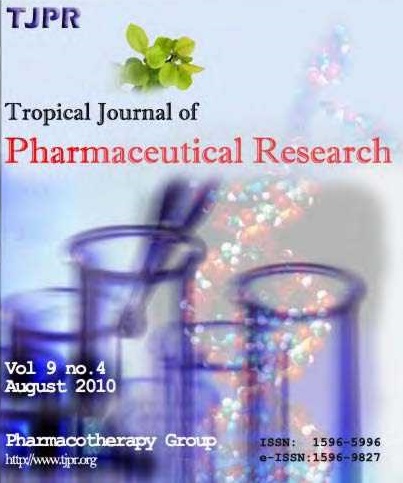Effect of carboprost tromethamine and carbetocin on coagulation factors and prognosis in puerpera with postpartum hemorrhage due to uterine inertia
IF 0.6
4区 医学
Q4 PHARMACOLOGY & PHARMACY
引用次数: 0
Abstract
Purpose: To determine the effect of carboprost tromethamine and carbetocin on coagulation factors and prognosis in puerpera with postpartum hemorrhage due to uterine inertia.Methods: A total of 80 high-risk pregnant women with postpartum hemorrhage due to uterine inertia admitted to Longyan First Hospital Affiliated of Fujian Medical University, Longyan, China from June 2021 to June 2022 were randomly divided into control group (oxytocin + carboprost tromethamine, n = 40) and study group (oxytocin + carboprost tromethamine + carbetocin, n = 40). Vaginal bleeding volume was recorded for both groups at delivery, and 2 and 24 h after delivery. Decrease in hemoglobin level 24 h after delivery, as well as levels of coagulation factors, and adverse drug reactions before and after treatment were assessed.Results: The third stage of labor, postpartum hemorrhage at 2 and 24 h, and decrease in hemoglobin 24 h after delivery in the study group were lower (p < 0.05). Compared with that before treatment, PLT and FIB levels also fell, while APTT and PT levels rose in both groups after treatment for 24 h (p < 0.05). Platelet count and fibrinogen levels in the study group were lower after treatment for 24 h, but APTT and PT levels were higher (p < 0.05). There was no statistically significant difference in the incidence of adverse drug reactions between both groups (15.00 vs 12.50 %; p > 0.05).Conclusion: Co-administration of carboprost tromethamine with carbetocin prevents high-risk postpartum hemorrhage in pregnant women due to uterine inertia. It also reduces the level of bleeding, and promotes recovery of coagulation function. However, further clinical trials on a larger scale are recommended prior to the application of this treatment strategy in clinical practice.卡前列素、氨甲胺素和卡霉素对子宫惯性所致产后出血产妇凝血因子及预后的影响
目的:探讨卡前列素、氨甲胺素和卡霉素对子宫惯性所致产后出血产妇凝血因子及预后的影响。方法:选取2021年6月~ 2022年6月福建医科大学龙岩第一附属医院收治的因子宫惯性所致产后出血高危孕妇80例,随机分为对照组(催产素+卡前列素-三聚氰胺,n = 40)和研究组(催产素+卡前列素-三聚氰胺+卡前列素,n = 40)。记录两组分娩时、分娩后2、24 h阴道出血量。观察分娩后24 h血红蛋白水平下降情况、治疗前后凝血因子水平及药物不良反应。结果:研究组分娩第三期、产后2 h、24 h出血、分娩后24 h血红蛋白下降均低于对照组(p <0.05)。与治疗前比较,治疗24 h后两组患者PLT、FIB水平均下降,APTT、PT水平均升高(p <0.05)。治疗24 h后,实验组患者血小板计数和纤维蛋白原水平降低,但APTT和PT水平升高(p <0.05)。两组患者药物不良反应发生率比较,差异无统计学意义(15.00 vs 12.50%;p比;0.05)。结论:卡前列素联合卡霉素可预防因子宫惯性引起的高危产后出血。它还可以降低出血水平,促进凝血功能的恢复。然而,在将这种治疗策略应用于临床实践之前,建议进行更大规模的进一步临床试验。
本文章由计算机程序翻译,如有差异,请以英文原文为准。
求助全文
约1分钟内获得全文
求助全文
来源期刊
CiteScore
1.00
自引率
33.30%
发文量
490
审稿时长
4-8 weeks
期刊介绍:
We seek to encourage pharmaceutical and allied research of tropical and international relevance and to foster multidisciplinary research and collaboration among scientists, the pharmaceutical industry and the healthcare professionals.
We publish articles in pharmaceutical sciences and related disciplines (including biotechnology, cell and molecular biology, drug utilization including adverse drug events, medical and other life sciences, and related engineering fields). Although primarily devoted to original research papers, we welcome reviews on current topics of special interest and relevance.

 求助内容:
求助内容: 应助结果提醒方式:
应助结果提醒方式:


